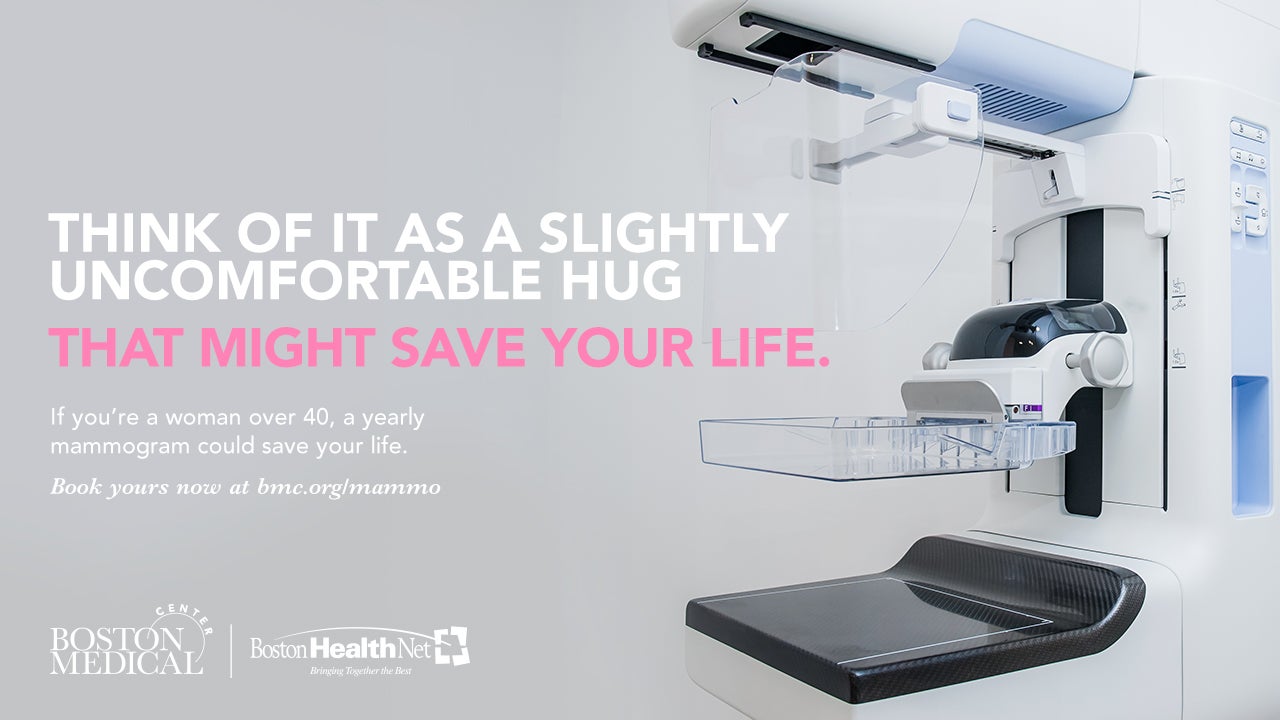If 40 is the new 30, then why do you need to start screening for breast cancer so early? Mammograms save lives, that’s why.
Age is an unavoidable risk factor for breast cancer. Although breast cancer risk is generally very low in women under 40, the risk that a woman might develop breast cancer rises with each passing year.
The earlier breast cancer is detected the better, because this is when it is most treatable. Early detection may prevent the need for extensive treatment for advanced cancers or may decrease the need for a mastectomy [surgical removal of the breast(s)].
Who else is at risk?
In addition to women 40 and over, there are other risk factors that determine a woman’s risk of getting breast cancer, including:
- Your family’s breast cancer history or inherited mutated BRCA gene
- Sedentary lifestyle
- Being overweight
- Certain hormone replacement therapies
- If you’ve had breast cancer before
- Prior treatment with radiation therapy
- Having dense breasts
Pay attention to your breasts. Any abnormal bumps should be brought to your provider’s attention. The temporary discomfort of a mammogram exam is just that, temporary. Mammograms may seem scary, but breast cancer is scarier. Book your annual mammogram today at BMC.org/mammo.
For more information, listen to Dr. Gregg Miller discuss the Importance of Getting a Mammogram on Boston MedTalks.
Media Contact:
communications@bmc.org en
en 

 Français
Français Deutsch
Deutsch Italiano
Italiano Español
Español Tiếng Việt
Tiếng Việt Kreyol ayisyen
Kreyol ayisyen